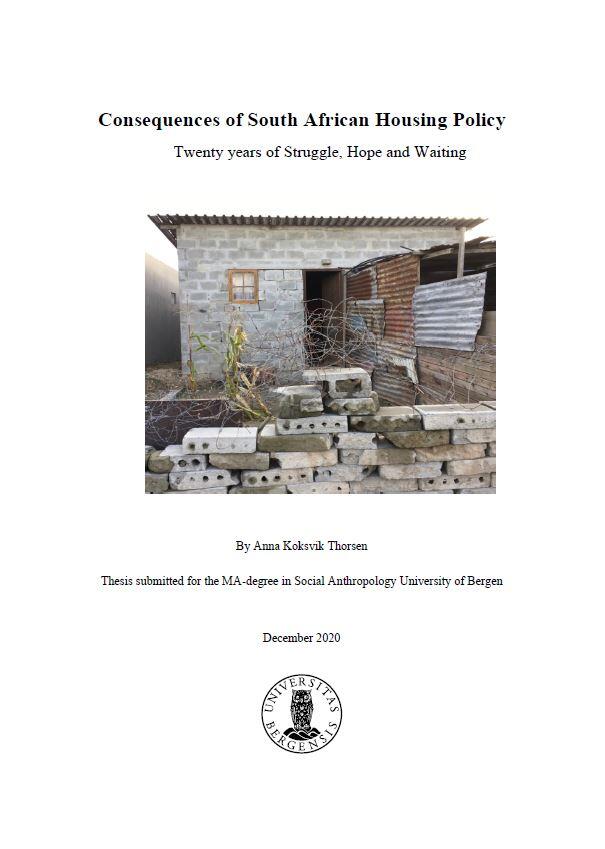Consequences of South African Housing Policy: Twenty years of Struggle, Hope and Waiting
Hovedinnhold
Master's thesis submitted at Department of Social Anthropology, autumn 2020.
By: Anna Koksvik Thorsen
Supervisor: Professor Bjørn Enge Bertelsen
This thesis is an exploration of urban housing politics from below in the post-Apartheid city Cape Town, specifically focusing on what ways different groups of people – differentiated by class, race or gender – have varied access to urban resources. The fieldwork took place in Hazeldean, a community within a Township area called Philippi, where ongoing developments in the community and tense negotiations about land rights are heavily impacting people. The aim is to understand how the lived experiences of South African housing policies are affecting residents’ access to urban resources, such as mobility, housing, land right and safety.
Other anthropologists within the field of urban anthropology such as Kerry Ryan Chance (2018) have demonstrated how urban housing politics has failed to provide individual and basic needs. This thesis explores what these needs are specifically and how residents of such housing projects are in different ways accessing these. The theoretical perspectives that are used to explore this is mainly Kerry Ryan Chance (2018), Fiona Ross (2010) and Teresa Caldera’s (2016) work.
As land rights is a crucial and burning subject in South Africa, this thesis shows how landlessness are affecting people’s possibility to assure a better future for themselves and their kin relations. However, this study has shown that kin relations are also used to create hope for the future in a difficult life situation with different temporal uncertainties.
Finally, this thesis demonstrates how practices described as urban dwellings (Simone 2004) or skarrelling (Ross 2010) unfolds in real life situations, and that such practices are often struggles to get by and access basic needs such as protection against crime, danger and poverty. Ethnography in this thesis exemplifies that residents’ practices to create safety has both made them clever in organizing this collectively, but also in some cases made people become more individual and afraid.
